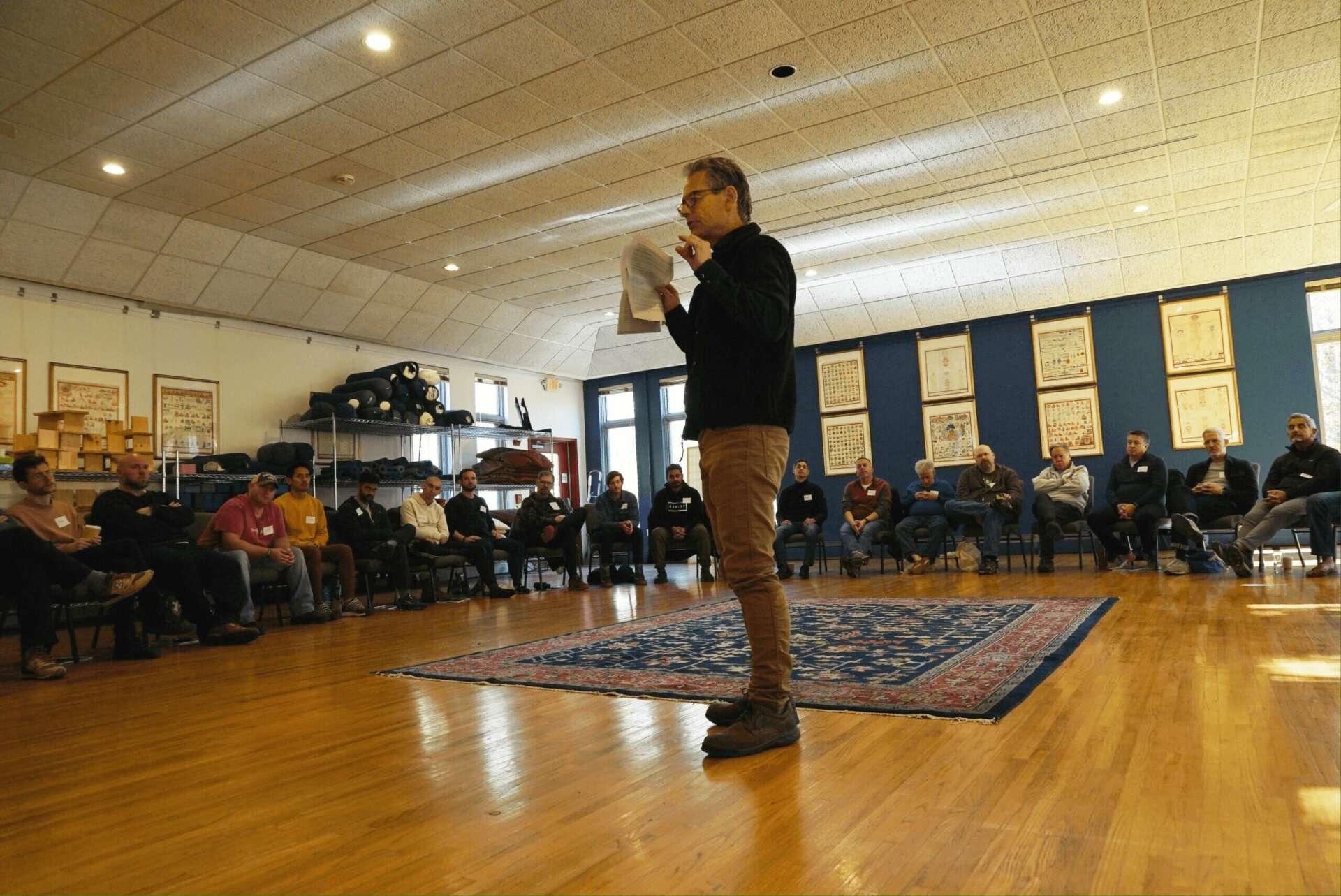We caught up with the brilliant and insightful Owen Marcus a few weeks ago and have shared our conversation below.
Hi Owen, thanks for joining us today. What’s something you believe that most people in your industry (or in general) disagree with?
Here’s a refined version of your answer:
In my three decades of working with men’s emotional wellness, I’ve encountered a pervasive cultural assumption: men lack emotional intelligence. I strongly disagree with this notion. It’s not that men are inherently less emotionally intelligent; rather, they often lack proper models and training to connect with and express their emotions effectively. Throughout history, men have been conditioned to suppress their feelings, leading to a belief that they are emotionally deficient. This conditioning also suggests that there’s a “right” way to feel and express emotions, which can discourage men from engaging with their emotional selves if they feel they can’t “win” at it.
My experience has shown that when men are provided with an emotionally safe space, along with some guidance and encouragement, they become remarkably expressive. I’ve heard numerous men share things they’ve never voiced before, amazed at how safe and heard they felt in the process.
Another point of contention for me is the dominance of cognitive approaches to emotional and relational change. If intellectualizing our problems were sufficient for emotional bliss, we would all be in a perpetual state of happiness. However, science shows that our bodies first experience a situation, followed by our emotions, and finally our conscious minds. This sequence reveals that our thoughts are often not in control during stress responses, contrary to the common belief that our minds should lead. Instead, it’s the physiology of our emotions and stress that holds sway, highlighting the need for approaches that integrate the body and emotions rather than relying solely on cognitive strategies.


Awesome – so before we get into the rest of our questions, can you briefly introduce yourself to our readers.
I was initially drawn to working with men due to a personal realization: I needed to enhance my emotional and relational intelligence. My relationships weren’t necessarily bad, but they lacked depth and fulfillment. Recognizing myself as the common denominator in these interactions, I sensed an opportunity for growth, especially when I found myself resistant to the idea of men’s groups or trainings. This resistance hinted at an underlying potential that compelled me to explore further.
My journey began with starting my first men’s group in an integrative medical clinic. Although the initial attempt was mediocre, it opened my eyes to what a committed group of men could achieve. Over time, I recognized a crucial element missing in traditional men’s work: the integration of our physiological responses. My background in somatic psychotherapy and trauma informed my understanding that significant change often involves engaging the body.
In 2005, I crafted a new model for men’s groups, starting with a group that grew to include over 500 past and present members. This experience laid the foundation for co-founding EVRYMAN, where I applied this innovative model on a broader scale. The model’s effectiveness garnered significant press coverage and observable results, leading me to refine it further. At the beginning of 2024, I left EVRYMAN to co-found MELD (Men’s Emotional Leadership Development).
At MELD, we train men, both virtually and in-person, to harness their stress physiology as a tool for change and connection. Many men come to us after other methods have failed, realizing that the issue often lies not within themselves but within the approaches they’ve tried. Our MELD Method, which we have introduced in public trainings and organizations like Google, shifts the focus from merely managing emotional reactions to understanding and using physiological tools, empowering men in scenarios where they previously struggled.
What sets us apart is our profound dedication to a scientifically grounded, body-centric approach that facilitates sustainable change quickly. While some organizations are beginning to acknowledge the importance of somatics and trauma work, few can match our depth of training and experience. This unique positioning is something I take immense pride in, and I believe it is crucial for potential clients and followers to understand the transformative power and scientific foundation of our work.
![]()
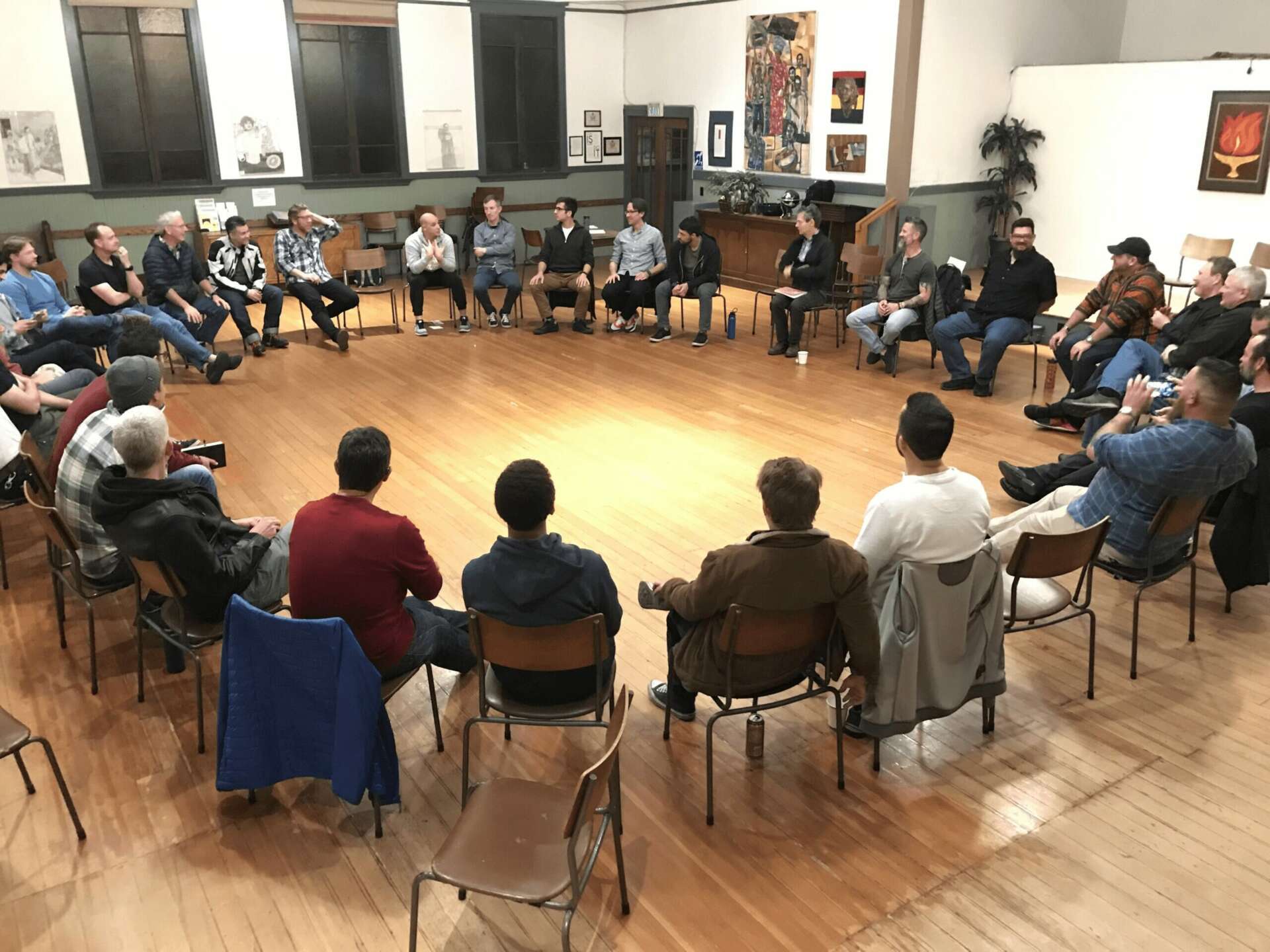
Can you talk to us about how your side-hustle turned into something more.
Here’s an enhanced version of your answer:
My journey into what became my main business started not as a deliberate commercial endeavor, but rather as a personal mission—facilitating men’s groups. This began as a side hustle, driven more by personal growth than financial gain. Initially, I had no clear expectations or understanding of the effort it would require, nor was there any monetary reward.
Leading these groups weekly proved to be a profound learning experience. The early years were filled with challenges: some participants tested my authority, while others pushed me to develop both emotionally and in terms of my skills. Every week was unpredictable, and this unpredictability taught me to stay present, trust my instincts, and speak out, even at the risk of confrontation.
The transition from a personal project to a business occurred when other groups sought my expertise. Men started requesting training and coaching, signaling to me that there was a viable business opportunity. It was at this point that I began to monetize my efforts, initially on my own and later by integrating my methods with EVRYMAN, where I trained other coaches and facilitators.
However, internal issues at EVRYMAN eventually led my core team and I to establish MELD (Men’s Emotional Leadership Development), which offered us the freedom to deliver our work without constraints, reaching both individuals and organizations.
This experience reinforced the notion that while following your passion can be fulfilling, it is not a panacea. Scott Galloway’s critique of the “follow your passion” mantra resonates with me; it’s not a universal solution, especially for those just starting out. Often, our true calling finds us through the work we do, even if it’s not what we love at first. My work with men’s groups was something I immensely enjoyed from the beginning, not initially intended as a career path. Yet, over the years, what started as a pro bono effort organically evolved into my main professional pursuit.
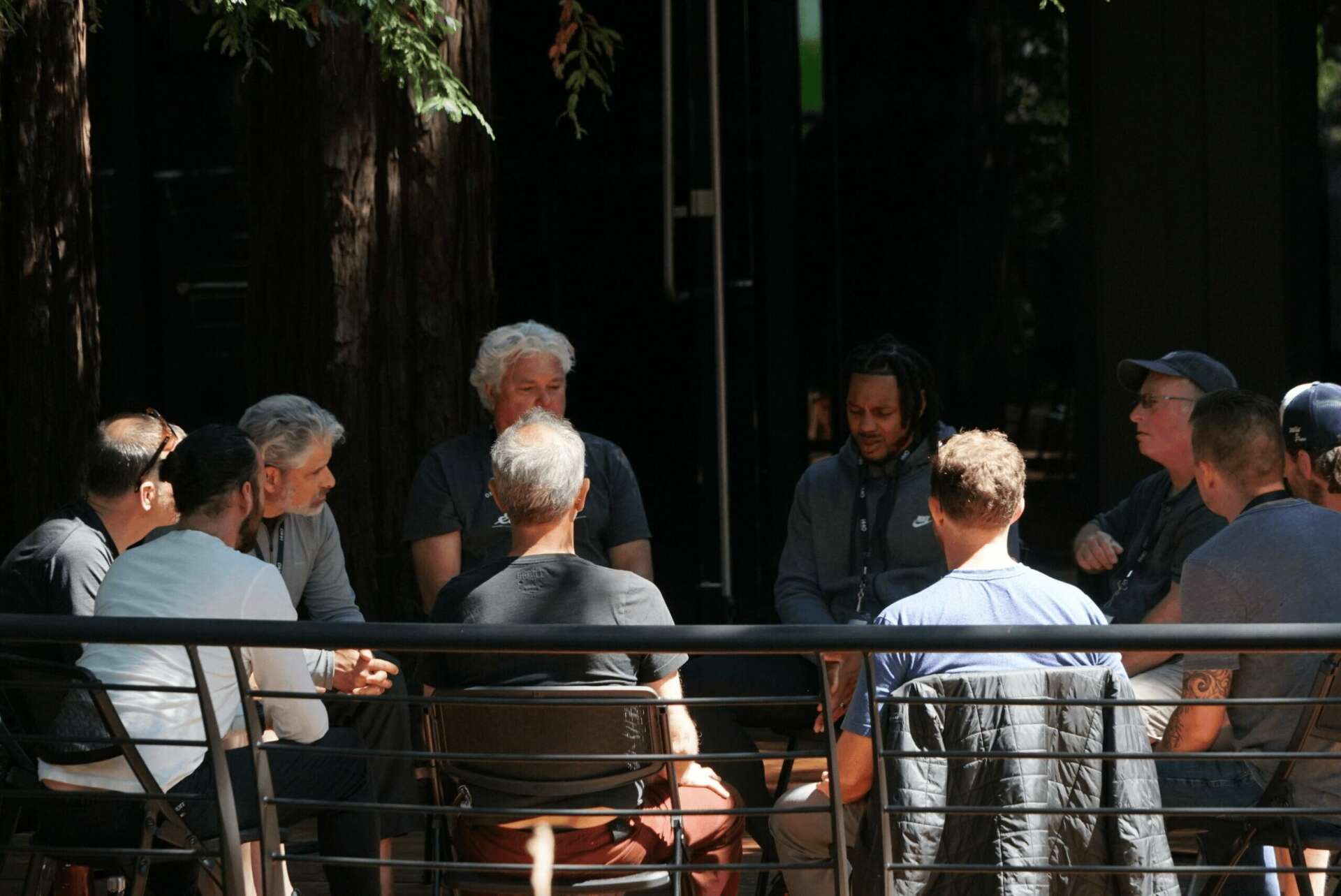
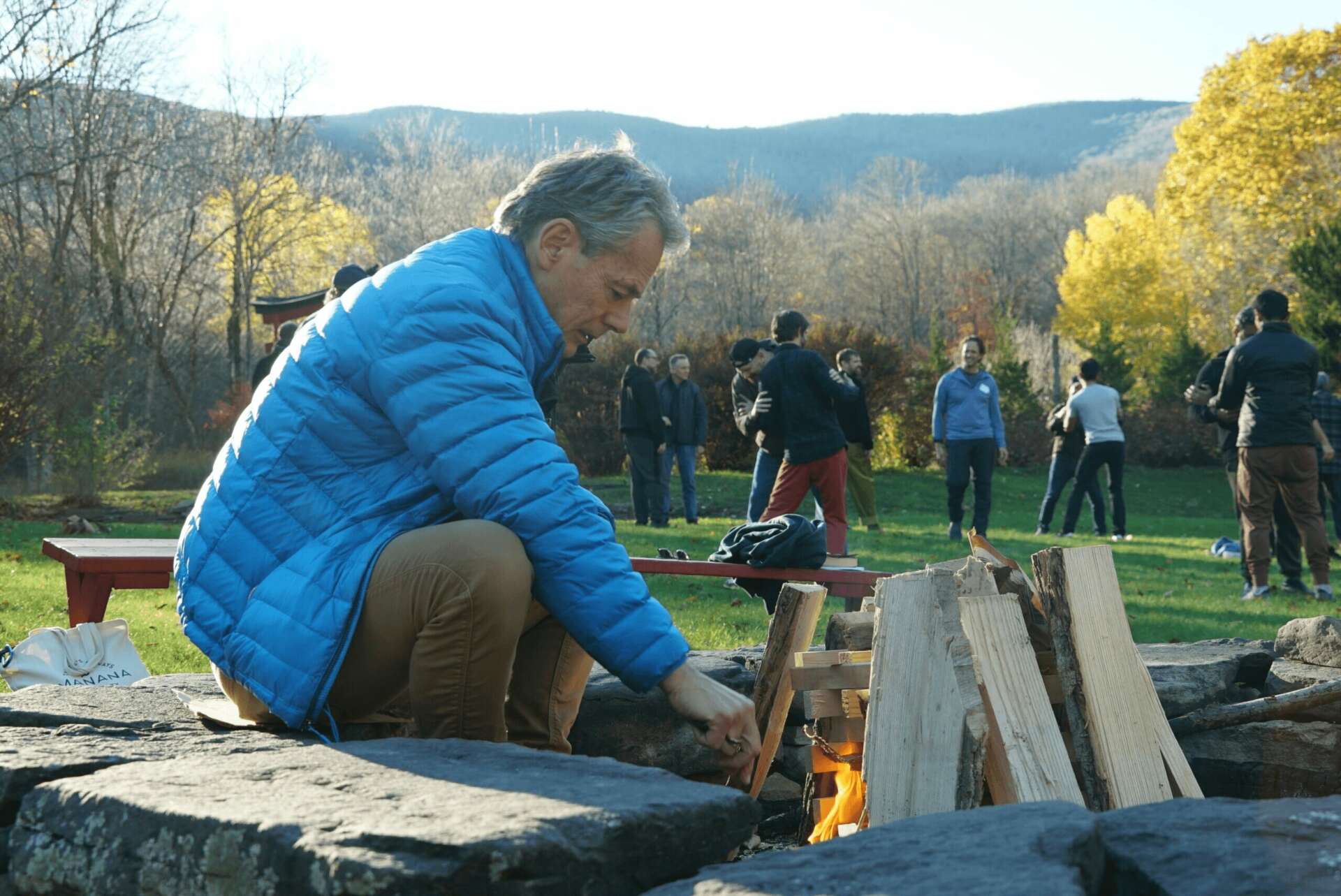
How’d you build such a strong reputation within your market?
Here’s an improved version of your answer:
I learned early on in my career, particularly during my time running an integrative medical clinic, that the most effective way to engage clients wasn’t through explanations, scientific evidence, or sales pitches alone, but through firsthand experiences. The realization was striking: if you can provide an experience that speaks for itself, you bypass the potential customer’s skepticism and fear. This approach isn’t just about discussing the benefits of a service or product; it’s about letting individuals directly experience its impact.
This philosophy has guided my approach both at my clinic and now at MELD. Whether it’s through reading our articles, listening to me on a podcast, or coming across a compelling social media post, every interaction is an opportunity for an experience. More direct experiences, such as participating in our workshops virtually or in person, are particularly transformative.
Another significant benefit of this experiential approach is the feedback it generates. By taking the time to listen to how clients describe their experiences, I often gain insights that surpass my own explanations. Clients frequently articulate their experiences using metaphors and descriptions that resonate more authentically with others. Their genuine, relatable language helps build trust and broadens our reach more effectively than any marketing could.
Moreover, developing a unique model that consistently delivers results where others might not, and framing it in a way that is both scientifically robust and easily understandable, has greatly enhanced our reputation. Initially, being an outlier in the field was challenging, but as we gained traction, it felt like being pulled back in a slingshot—once released, we surged ahead, often surpassing others in our industry. This momentum has been crucial in establishing our standing and influence within the market.
Contact Info:
- Website: www.MELD.community
- Instagram: https://www.instagram.com/meld.men/
- Facebook: https://www.facebook.com/meldmen
- Linkedin: https://www.linkedin.com/company/99208315

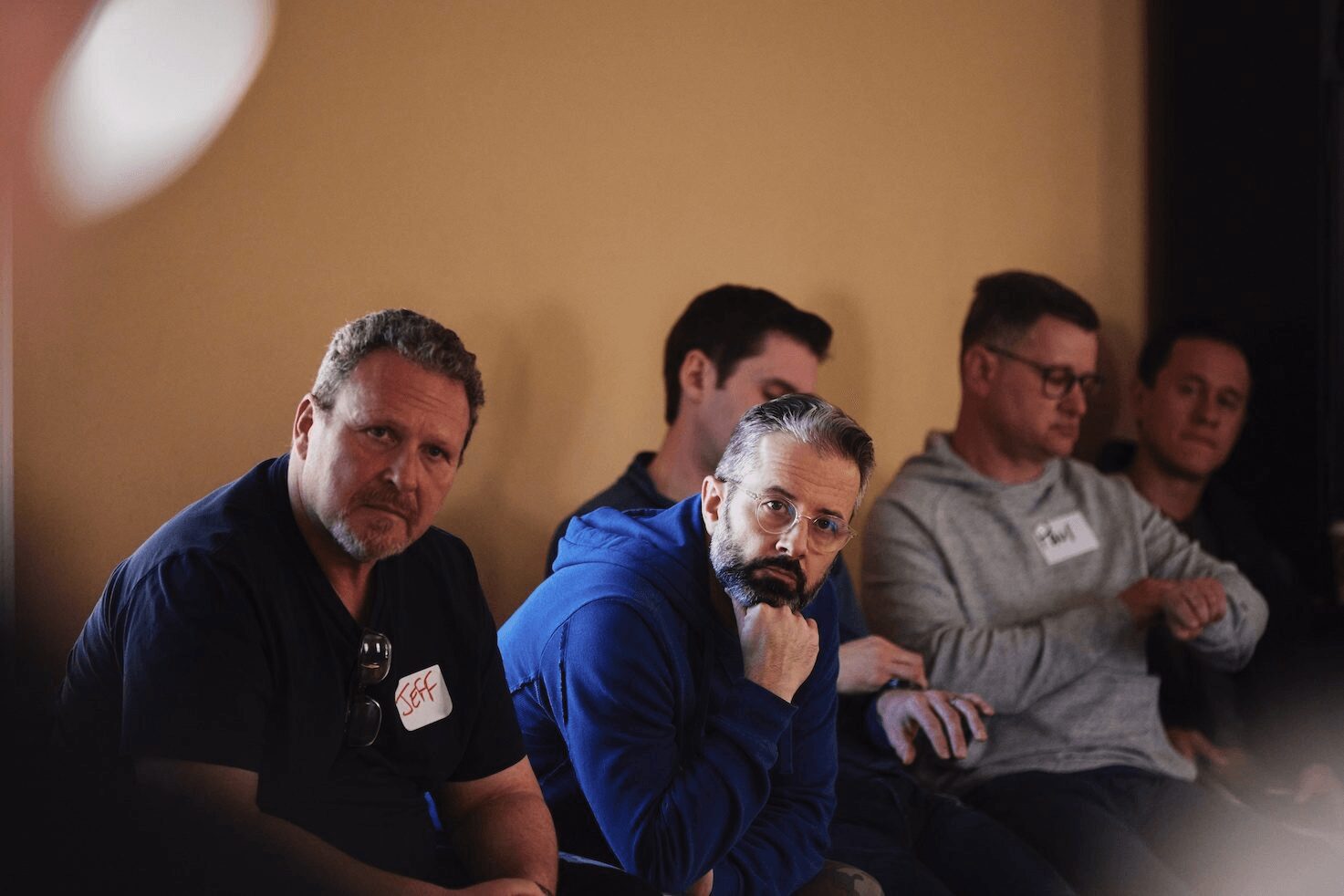
Image Credits
Tom Kubick


